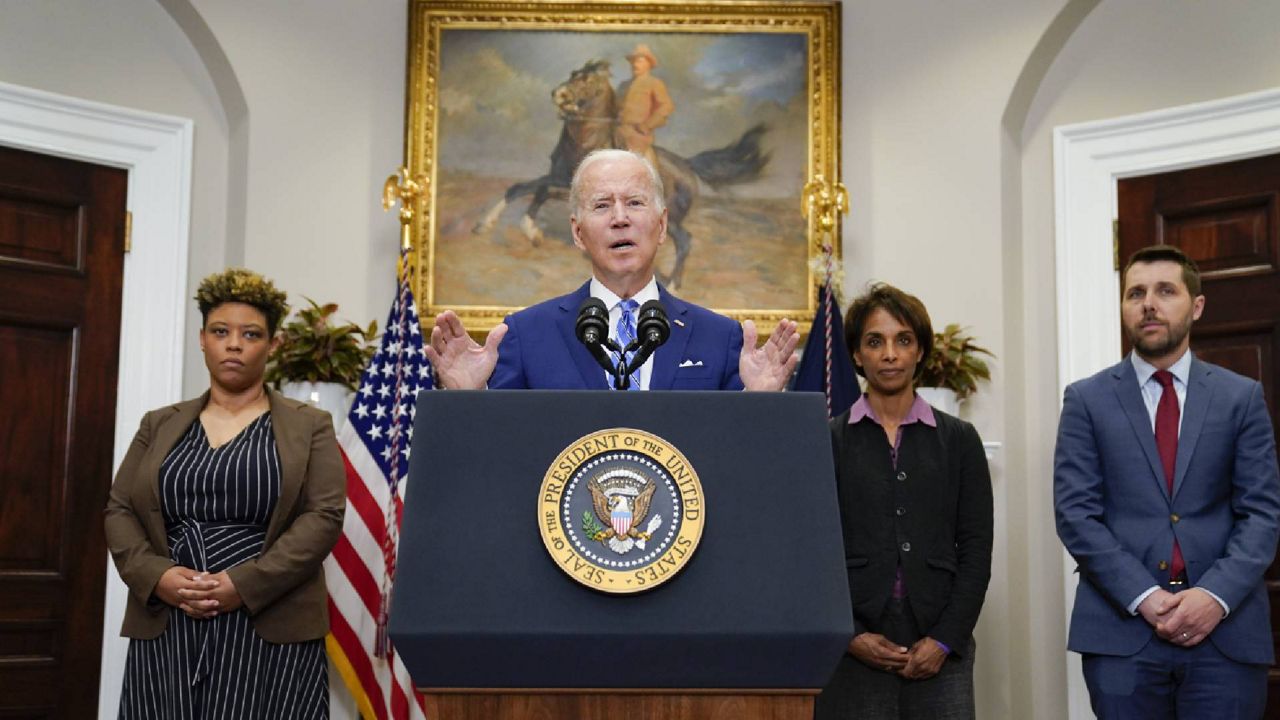President Joe Biden on Wednesday highlighted how far the federal deficit has fallen under his tenure, pointing to a new report from the Treasury Department that estimates this fiscal year’s budget deficit will decline $1.5 trillion.
That decrease marks an improvement from initial forecasts and would likely put the annual deficit below $1.3 trillion. The deficit also fell $350 billion in Biden’s first fiscal year.
“It's gone down both years since I've been here. Period,” he said at the White House.
The Democratic president has placed renewed emphasis on deficit reduction going into the midterm election, with administration officials saying that the burst of $1.9 trillion in coronavirus relief approved in 2021 has already paid off in the form of faster growth that now makes it easier to stabilize government finances.
“With the American Rescue Plan and other actions, we started to grow the economy from the bottom up in the middle out,” he said, listing pandemic stimulus checks, Affordable Care Act enrollment and the nation’s jobs growth.
The Treasury this week also announced it would pay down $26 billion of its debt this quarter. President Biden on Wednesday said reducing the money that the federal government owes is one way to ease inflation.
“All the talk about the deficit from my Republican friends. I love it,” Biden quipped. “We're on track to reduce it by the end of September by another $1.5 trillion. The largest drop ever.”
“I don't want to hear Republicans talking about deficits and their ultra [Make America Great Again] agenda,” he added. “ I want to hear about fairness. I want to hear about decency. I want to hear about helping ordinary people.”
It is unclear if greater fiscal responsibility can deliver politically for Biden as Democrats try to defend control of Congress. His two most recent Democratic predecessors, Bill Clinton and Barack Obama, also cut budget deficits, only to leave office and see their Republican successors use the savings on tax cuts.
Norman Ornstein, an emeritus scholar at the conservative American Enterprise Institute, noted that deficits are often “abstract” for voters. The recent low interest rates have also muted any potential economic drags from higher deficits, which have risen following the COVID-19 pandemic and, separately, the 2008 financial crisis, to help the economy recover.
“They’re more likely to respond to things that are in their wheelhouse or that they believe will have a more direct effect on their lives,” Ornstein said. Deficits are “a step removed for most voters, and we’ve been through periods where we’ve had the big deficits and debt and it’s not like it devastated directly people’s lives.”



